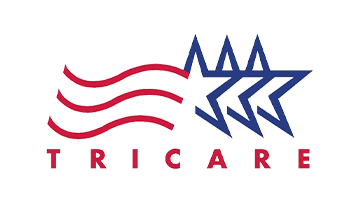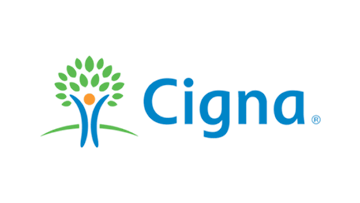Give us a call(720) 796-6885
Mental Health Assessment
When looking at addiction, mental health can be a huge factor. It is important to find undiagnosed mental health issues and co-occurring disorders when recovering.
01
Assessment
Addiction is a complex and challenging issue that can take a toll on one’s mental health. At Valiant Detox, we understand the importance of addressing any undiagnosed mental health issues or co-occurring disorders when treating addiction.
We believe that it’s crucial to assess each person’s individual needs so that we can provide comprehensive care that addresses all aspects of their well-being. By taking a holistic approach to addiction treatment, we aim to help our clients not only overcome their addiction but also to achieve a healthy mind and body. At Valiant Detox, we’re committed to treating you as a person, not just your addiction.
02
Detox Treatment
Facing addiction and substance abuse can be intimidating but the long-term benefits to you and your family are invaluable. After a thorough analysis of your mental health, it is critical to detoxify from any substances that you have been using. Although this step in recovery will not always be easy, our team of experienced professionals will help guide you through each stage along the way.
With the trust of clinicians, we will ensure that your detoxification process is secure and safe so that you can move forward in recovery with assurance.
03
Case Management
At Valiant Detox, we understand that completing detox is just the first step in your journey to recovery. That’s why we take the time to assess your mental health so that we can create a personalized plan for your continued success. Once you have safely completed detox with us, we work together to figure out what the next best step is for you. Whether it’s finding a recovery center that aligns with your goals or continuing treatment with a therapist, we are committed to supporting you every step of the way. We believe that everyone deserves a chance at a healthy, fulfilling life, and we are honored to be a part of your recovery journey.
Finding Long Term Treatment
Here at Valiant Living Detox and Assessment, we understand that long-term care is essential for overcoming addiction or substance abuse to reach a balanced physical and mental state. Consequently, we have tailored our treatment plans in an inpatient rehabilitation setting to ensure each individual receives the personalized attention they deserve.
We recognize the gravity of each person’s struggles and endeavor to provide a safe, hygienic, and inviting environment while they receive top-notch treatment. Not only do we focus on aiding our customers in their quest to overcome addiction issues but also ensure that an extensive plan is tailored for them moving forward.
Here at Valiant Living Detox and Assessment, we are devoted to providing our clients with the resources for a successful long-term recovery. To achieve this, we’ve developed daily group activities tailored specifically to each individual’s needs as well as patient-focused care that promotes family involvement. By creating an atmosphere of support throughout their journey, we strive to equip them with the necessary tools needed for success in life beyond treatment.
One Of Colorado's Top-Rated Drug & Alcohol Rehabs
Do not let another day go by. Our professional admissions team is standing by to talk to you now.
Come visit us in our beautiful treatment center and experience a life enriched by sobriety.

Understanding Addiction
If you think that it is time to get help, Valiant Detox's quizzes can assist you in comprehending your issue and figuring out how we can lend a hand. We are devoted to helping those struggling with addiction as well as their families on the journey toward sobriety.
FAQ
We’ve put together a list of commonly asked questions to help shed some light on the experience and ease any lingering fears or anxieties you may have.
Our goal is to ensure that the detoxification process is as smooth and comfortable as possible for our guests. Medical care is available 24/7 and we utilize a variety of therapies, activities and treatments to promote a positive, healthy experience. These include daily activities, individual and group therapy, holistic approaches, medication maintenance and more, scheduled in such a way that is ideal for patient recovery. The goal is to maintain a daily balance that isn’t too hectic or overwhelming, nor so relaxed that guests get bored. Patients also receive a certain amount of personal freedom and independence; we are not a hospital or psychiatric ward and clients are not locked in. Our facility strives to create an inviting, home-like environment for a safe and comfortable experience. At Valiant Living Detox and Assessment, our patients are our guests and we treat them as such.
On average, detox lasts about five days but can range from three to 10 days. Detox varies from patient to patient and you or your loved one’s exact length of stay depends on a variety of factors, such as: the substance(s) they have used, the amount of substance(s) they have used, the length of time they have been using the substance(s), frequency of use and the route of administration can all determine just how long they need to be in our care.
At Valiant Living Detox and Assessment, we understand that detox alone isn’t a long-term solution for treating addiction. It is just one intervention method of many for changing a substance-abusing lifestyle into a clean-and-sober one. For this reason, we work very hard to help each individual develop an appropriate plan for formal chemical dependency treatment, whether on an inpatient or outpatient basis, at the time of their discharge.
Having a plan set up prior to detox would be ideal to help ensure that appropriate treatment is secured in advance, but things don’t always work out this way. Unfortunately, relapses and addiction rarely happen at logical or convenient times and leave little opportunity to set up a plan before entering detox. In this case, we work closely with the patient and their family to develop a post-detox plan and organize the next phase of recovery. This often involves coordinating treatment around work and family responsibilities, considering issues such as motivation, commitment or denial, and untangling financial or insurance limitations. While these decisions are never easy, they are done in order to promote the best chance at achieving long-term recovery and support the individual and their family as they work toward a life free of drugs or alcohol.
Detox is a difficult time for both the individual participating in the detox program and their family, who are separated from them during the process. At Valiant Living Detox and Assessment, we want you to feel comfortable knowing that your loved one is in a safe place during this difficult time and is being cared for appropriately with nothing but compassion and support. Although you may feel the need to be in contact or see them during this process, we firmly believe that detox is most effective when there are as few distractions as possible. This allows patients to focus on healing and gives them time to consider their next steps. Throughout the process, a staff member will be in contact with you to provide you with updates, progress reports and more. Our compassionate team will also be available to coach, support and advise you, so you’re better prepared to help your loved one make important decisions regarding their future and provide the guidance, encouragement and empathy they need at this time.
The first 24 hours of detox are often spent resting and recuperating. During this time, patients will have access to a phone and will be able to make a check-in call and provide a progress update. You will be able to provide encouragement and remind your loved one of the importance of what they’re doing, but after this period, it’s important that they focus on themselves and begin the healing process. Detox is a time for patients to take a step back from their lives so they can reconnect with their inner selves and engage in active self-reflection and self-care. Since the time in detox may last for three to 10 days, we recognize the importance of each precious minute we spend with our patients. Visitation may take away from the short amount of time available and interfere with program participation, so we believe it’s important to establish healthy boundaries and spend this time apart. For these reasons, visitation isn’t allowed during the detox phase of treatment, but a staff member will be in regular contact to keep you up-to-date.
What to bring
- Enough appropriate and comfortable clothing for a couple of days. We have laundry facilities available so no need to overpack.
- Personal hygiene products that DO NOT contain alcohol.
- Any prescription medications you are taking. These need to be in the original bottle with intact labels that include your doctor’s name, the name of the medication and dosage information.
- Electric Razor, blow dryer, or a curling iron.
- Your own personal recovery books.
- Socks, shoes, flip-flops, or slippers.
- Coats, jackets, or sweatshirts, depending upon the time of year.
- Photo ID and insurance information.
- A smile and positive attitude, to prepare you for the better life that you deserve.
What not to bring
- ANYTHING containing alcohol or other mind-altering substances.
- No personal snacks.
- Colognes, perfumes, or body sprays — most people become sensitive to these products while in treatment and they may trigger nausea.
- Athletic tank tops, revealing clothing, or revealing bathing suits.
- Flammable fuels or liquids, including those for Zippo lighters.
- Inappropriate or pornographic material that is detrimental to recovery, such as magazines, pictures, DVDs, videotapes, etc.
- Clothing that depicts the use, sales, promotion, or advertising of alcohol, drugs, or related paraphernalia.
- Weapons of any kind, including pocket knives.
- Cameras or any electronic device that is able to record (such as a cell phone or iPhone).
- Computers or any electronic device that can connect to the internet.
- Automobiles are not allowed at any time. We can help you with transportation to our program should you need it.
- Pets are not allowed.
- Staff has the right to refuse any other personal items not on this list that is not needed or appropriate for this phase of treatment.
Any valuable items should be left at home. While we can secure some of your personal belongings, our storage space is limited.

Verify Your Insurance With Us
Medically supervised treatment for detox is often the first step toward healthy recovery and we provide the guidance and professional care essential during the early stages of treatment.
we work with insurance as an in network provider








